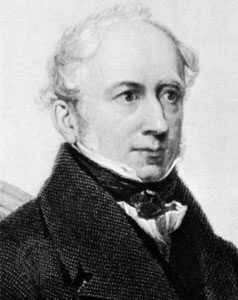 ‘After These Things’ Chapter2.3 The Rapture and the Appearing
‘After These Things’ Chapter2.3 The Rapture and the Appearing
From our book ‘After These Things – Summaries of John Nelson Darby’s Papers on Prophecy – and more…’ Compiled by Daniel Roberts. For more about this book click on the picture or CLICK HERE
The following couple of chapters take similar, often confused, subjects and make the differences clear.
The first concerns the return of the Lord Jesus. He returns:
- ‘To the air’ to take the living believers on Him to be with Him, and to raise the bodies of those who have ‘fallen asleep’. This is known as ‘The Rapture’. It could happen today.
- To come with His saints to reign over the earth for 1000 years. This is known as ‘The Appearing’. It follows the Great Tribulation and precedes the Millennium.
2.3 The Rapture and the Appearing
The Rapture and the Appearing Compared
The Rapture
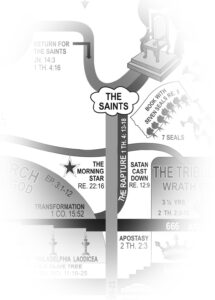 The next event for us is the Rapture. It could be at any time – today even – and applies only to the church. Because of that, there is no reference to it in the Old Testament. Indeed, the word does not appear in scripture, the nearest being ‘caught up’ in Greek ἁρπαγησόμεθα /harpagēsometha /Strong-726 in 1 Thessalonians 4:17.
The next event for us is the Rapture. It could be at any time – today even – and applies only to the church. Because of that, there is no reference to it in the Old Testament. Indeed, the word does not appear in scripture, the nearest being ‘caught up’ in Greek ἁρπαγησόμεθα /harpagēsometha /Strong-726 in 1 Thessalonians 4:17.
Why is the Rapture so little understood, or even accepted? This scripture in 1 Thessalonians 14:13-18 is unambiguous: ‘But I would not have you to be ignorant, brethren, concerning them which are asleep, that ye sorrow not, even as others which have no hope. For if we believe that Jesus died and rose again, even so them also which sleep in Jesus will God bring with him. For this we say unto you by the word of the Lord, that we which are alive and remain unto the coming of the Lord shall not prevent them[1] which are asleep. For the Lord himself shall descend from heaven with a shout, with the voice of the archangel, and with the trump of God: and the dead in Christ shall rise first: then we which are alive and remain shall be caught up together with them in the clouds, to meet the Lord in the air: and so shall we ever be with the Lord. Wherefore comfort one another with these words’. Look at a few phrases ‘the dead in Christ shall rise first’ – that encompasses all those who have been ransomed by His blood from creation onwards. Whether we who are alive now will be taken before this, none of us knows. Paul referred to ‘we, the living’, as if he thought it would be within his lifetime. Of course, we know it was not, but we should be looking forward to the Lord’s coming – just as Paul was.
Paul also says, ‘we shall ever be with the Lord’ (v.17), and ‘them also which sleep in Jesus will God bring with him’.
1 Corinthians 15:51-52 is another scripture which describes the resurrection of the saints and their being changed, which of course takes place at the Rapture: ‘We shall not all sleep, but we shall all be changed, in a moment, in the twinkling of an eye, at the last trump: for the trumpet shall sound, and the dead shall be raised incorruptible, and we shall be changed’. From this we can deduce that there will be a rallying trumpet, the whole event will be very rapid, and our bodies will be changed. The latter is also referred to in Romans 8:23 ‘waiting for the adoption, to wit, the redemption of our body’.
When the Lord was discoursing with his disciples immediately before the crucifixion, He tells them that a place was being prepared. ‘And if I go and prepare a place for you, I will come again, and receive you unto myself; that where I am, there ye may be also’ (John 14::3)
Therefore:
- The Rapture will be sudden
- No one knows when the Rapture will be
- The Rapture will be private
- At the Rapture, there will be a voice (or trumpet sound) which only Christians will hear
- The Rapture the Lord will not come quite to earth – just to the air
- The Rapture will affect people, whether taken or left: it does not change the world.
- At the Rapture, our bodies will be changed.
The question often arises as to what the effect of the departure of the saints will be. Suddenly millions of people will just vanish! Hal Lindsey who awakened many Christians to the Rapture in the 1970’s in a popular book ‘The Late Great Planet Earth[2]’ said there would be confusion. I doubt it. Christians who are ‘not of the world’ will not affect it, so they will not be missed. Paul writes in an update to his previous letter, ‘God shall send them strong delusion, that they should believe a lie’ (2 Thessalonians 2:11). The Antichrist will conjure up a satisfactory credible explanation.
The Appearing
 Now when Jesus comes (the public second coming, ‘the Appearing’, often referred to in scripture, e.g. Titus 2:15 Darby, NIV, ESV etc.) – ‘awaiting the blessed hope and Appearing of the glory of our great God and Saviour Jesus Christ’. The dead in Christ will be with Him – and so will be those lovers of the Lord who were alive at the Rapture, and, ‘When Christ who is our life shall appear, then shall ye also appear with him in glory’ (Col 3:4). The church’s hope and glory is Christ Himself. Of course, we could not come with Him if we were still on the earth.
Now when Jesus comes (the public second coming, ‘the Appearing’, often referred to in scripture, e.g. Titus 2:15 Darby, NIV, ESV etc.) – ‘awaiting the blessed hope and Appearing of the glory of our great God and Saviour Jesus Christ’. The dead in Christ will be with Him – and so will be those lovers of the Lord who were alive at the Rapture, and, ‘When Christ who is our life shall appear, then shall ye also appear with him in glory’ (Col 3:4). The church’s hope and glory is Christ Himself. Of course, we could not come with Him if we were still on the earth.
The church is heavenly in its calling and belongs to Christ in heaven. It forms no part of the course of events of the earth. This makes its Rapture so simple and clear as we see from Col 3:4), ‘When Christ who is our life shall appear, then shall ye also appear with him in glory.’ The church’s hope and glory is Christ Himself.
We must not confuse the second coming with the Rapture. At the Rapture, the Lord comes to the atmosphere immediately above the earth. At the Appearing, He comes to the earth itself.
The Rapture and the Appearing Compared
Here are some differences between the Rapture and the Appearing.
| Rapture | Appearing |
| No one knows when it will be. 2 Thessalonians 2:3 | It will be seven years (arguably 3½) after the Rapture – Matthew 24:36, Daniel 9:27
|
| It will be private | It will be very public, Matthew 24:27
|
| Rapture | Appearing |
| The Lord comes to the air.- 1 Thessalonians 4:17 | The Lord comes to the earth – Zechariah 14:4 |
| He comes FOR His saints -1 Thessalonians 4:17 | He comes WITH His saints – Colossians 3:4 |
| It is followed by the great tribulation – Revelation 3:10 | It is followed by the Millennium – Revelation 20:6 |
| He is the Bridegroom – Revelation 19:7 | He is the King – Revelation 19:6 |
| He is the Morning Star – 2 Peter 1:19 | He is the Sun of Righteousness – Malachai 4:2 |
| It is for the Church – 1 Thessalonians 4:15-16 | It is for His earthly kingdom – Revelation 11:15 |
| There is little in prophecy – 1 Thessalonians 4, 1 Corinthians 15 etc
|
There is much in prophecy – OT Prophets, Matthew, Mark, Revelation etc |
| Rapture | Appearing |
| The world will carry on – Matthew 24:37 | Christ will reign – Isaiah 32:1 |
| The man of sin will be revealed – 2 Thessalonians 2:3 | Satan will be bound – Revelation 20:2 |
| There will be the judgment seat of Christ -2 Corinthians 5:10 | The world will be judged – Revelation 18:10 |
| People will be translated – 1 Corinthians 15:51 | People will not be changed – understood] |
| People will believe a lie – 2 Thessalonians 2:11 | The truth will be acknowledged – Zechariah 12:10 |
After the Rapture, there will be intense persecution of believers on the earth. The Antichrist will rule, initially benevolently with a pact with the Jews. Then after 3½ years, he will break the pact. Meanwhile, the church will be enjoying the most beautiful joy – the marriage of the Lamb.
Satan is the author of this confusion. He does not want Christians to have the anticipation of the Lord’s coming. And he certainly does not want us to be near Him saying ‘Come Lord Jesus’.
3 ½ or 7 Years?
There is some disagreement amongst students of prophecy as to the length of time between the Rapture and the Appearing. Most regard the period as seven years, divided into two sub-periods of 3½ years. A few say that the first 3½ weeks were covered by the Lord’s public ministry, so the two events are 3½ years apart. This book accepts the first position.
The key to this reasoning is in Daniel 9:24-27: ‘Seventy weeks are determined upon thy people and upon thy holy city, to finish the transgression, and to make an end of sins, and to make reconciliation for iniquity, and to bring in everlasting righteousness, and to seal up the vision and prophecy, and to anoint the most Holy. Know therefore and understand, that from the going forth of the commandment to restore and to build Jerusalem unto the Messiah the Prince shall be seven weeks, and threescore and two weeks: the street shall be built again, and the wall, even in troublous times. And after threescore and two weeks shall Messiah be cut off, but not for himself: and the people of the prince that shall come shall destroy the city and the sanctuary; and the end thereof shall be with a flood, and unto the end of the war desolations are determined. And he shall confirm the covenant with many for one week: and in the midst of the week he shall cause the sacrifice and the oblation to cease, and for the overspreading of abominations he shall make it desolate, even until the consummation, and that determined shall be poured upon the desolate.’
Given that a week is ‘a week of years’, that is seven years we have:
- The whole period is 4×70 = 490 years
- This is divided into three periods
- 7 weeks (1-7) Command to Nehemiah to completion of the temple
- 62 weeks (8-69) Temple to Messiah cut off – the death of Christ (AD29)
- Destruction of temple (AD70)
- Church Period (not in the scope of prophecy)
- 1 Week (70) From covenant made by the Roman Prince till Millennium (Covenant broken in the midst of the week)
The covenant made with the Roman Prince must be after the manifestation of the Antichrist which must be after the Rapture – but it can be a very short time. From this, it is clear that the period from the Rapture to the appearing must be seven years.
To begin with, J N Darby supported this view. However later he began to question it. In a letter to the Bible Treasury, he says he has an open mind as to which of the two positions above was correct. (See Are there Two Half Weeks in the Apocalypse? – Collected Writings Vol 11 (Prophetic 4) page 168). The fact is that most of those who looked up to Darby never accepted this view. Darby was not infallible!
Following Daniel’s chronology, we have:
Edict to build temple 12th year of Xerxes[3] 455BC
Seven weeks. 7 x 7 = 49 406BC
62 weeks. 62 x 7 = 434 -406+434+1 29AD
The Lord’s crucifixion was 29AD
The Rapture X AD
The Lord’s Second Coming X+7 AD
The one year added was because there was no year zero.
[1] The Darby version reads ‘in no way to anticipate those who have fallen asleep’
[2] Published by Zondervan, 1970 – Available from Amazon and others
[3] The date commonly given for this is B.C. 445 (20th year of Artaxerxes); but Usher (presumably James Ussher – 1650) gave 455, and Hengstenberg and others contend that this is the true date. Hengstenberg shows in his ‘Christology’ how the mistake arose. Vitringa rectified the date, and Krüger, by an independent enquiry, also proved that the old date was wrong. – Morrish Bible Dictionary ‘Seventy Weeks of Daniel’ – https://www.stempublishing.com/dictionary/706_730.html#a4121



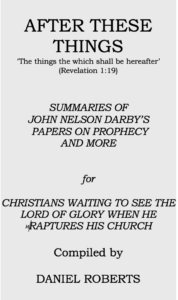
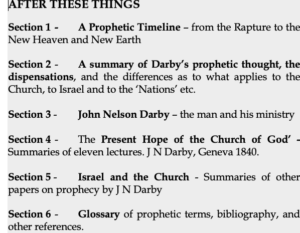
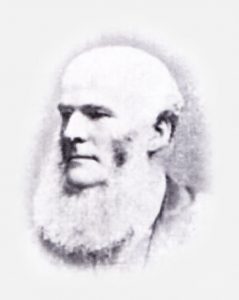
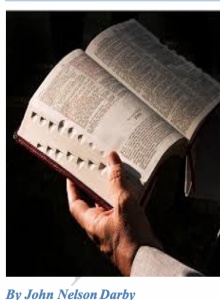
 At a discussion about ‘A Day of Small Things’ with a few friends, the suggestion was made that there should be an introduction to a little basic theology. This is a subject many like myself have steered clear of, even regarding the term as a dirty word, and for very good reason.
At a discussion about ‘A Day of Small Things’ with a few friends, the suggestion was made that there should be an introduction to a little basic theology. This is a subject many like myself have steered clear of, even regarding the term as a dirty word, and for very good reason.
 An elderly sister had spoken to him recently, and said how she woke up during the night with troubles on her mind, especially those amongst the Christian group she was with. But there were others – the world, her family, herself – particularly her health. Then she said “Wouldn’t it be great if I woke up thinking, ‘This is the day the Lord is going to come!’ Wouldn’t that make a great difference to the day – and to me?”
An elderly sister had spoken to him recently, and said how she woke up during the night with troubles on her mind, especially those amongst the Christian group she was with. But there were others – the world, her family, herself – particularly her health. Then she said “Wouldn’t it be great if I woke up thinking, ‘This is the day the Lord is going to come!’ Wouldn’t that make a great difference to the day – and to me?”

